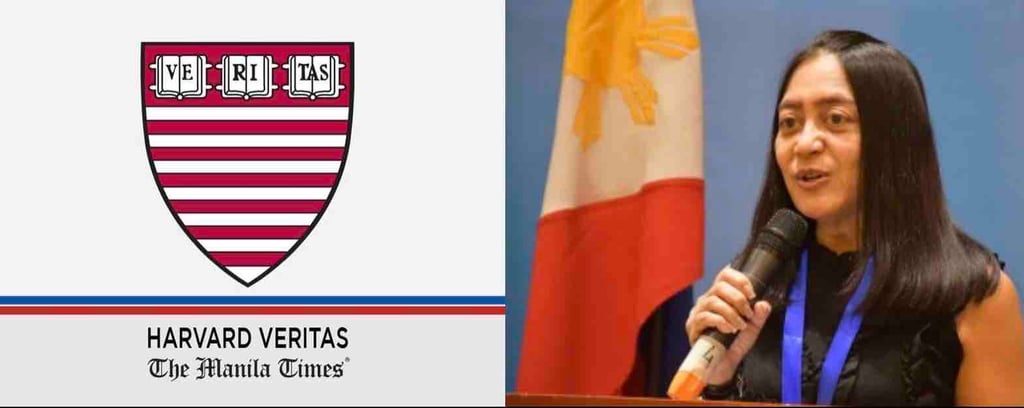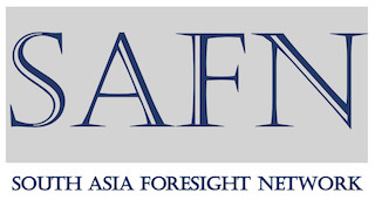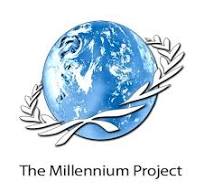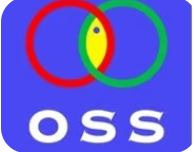Beyond firewalls: Measuring the morality of nations HARVARD VERITAS
The ECGI now provides that language. It complements the operational realities I have lived — linking practice to prediction and action to foresight. If years in cyber operations taught me to identify risk up close, Asanga’s ECGI teaches us to see it in full. It reminds us that foresight is not prophecy but disciplined observation at scale — the science of accountability.
COMMENTARIES
Mary Rose Magsaysay
10/19/2025


I AM deeply honored to have been appointed a distinguished senior fellow at the South Asia Foresight Network’s Economic Crime and Geopolitics Center (SAFN-ECGC) under The Millennium Project in Washington, D.C. This distinction is not a redirection of purpose but a widening of scope — an opportunity to translate years of hands-on cybercrime work into a global context of foresight, ethics and accountability.
At the heart of SAFN-ECGC is Asanga Abeyagoonasekera, whose leadership has redefined how nations can understand the intersection of governance, security and morality. His creation, the Economic Crime and Geopolitics Index (ECGI), is a groundbreaking framework that quantifies the relationships among corruption, weak governance and geopolitical instability. Where most indices capture perception, the ECGI captures patterns — the tangible ways ethical erosion fuels economic decay and political vulnerability.
"Where most indices capture perception, the ECGI captures patterns — the tangible ways ethical erosion fuels economic decay and political vulnerability."
By transforming those dynamics into measurable indicators, the ECGI turns integrity into data. It maps how illicit finance corrodes institutions, how institutional weakness invites interference and how these forces reinforce each other. It gives governments a dashboard for foresight, showing where fragility is forming before it erupts into crisis.
The ECGI’s brilliance lies in its precision and scalability. It integrates economic indicators, digital-governance metrics and behavioral analytics into a single model that treats integrity as infrastructure — as essential to national stability as energy, transport or communications systems. By converting moral failure into measurable risk, it redefines accountability as a structural, not philosophical, issue.
"By converting moral failure into measurable risk, it redefines accountability as a structural, not philosophical, issue."
Asanga’s approach reframes accountability as geometry — the study of measurable relationships among governance, economics and ethics. It exposes what has long been invisible: the cost of moral failure. Just as forensic science once revolutionized criminal investigation, the ECGI is transforming governance, proving that national integrity can be audited and strengthened like any other asset.
Its implications reach far beyond governance. The ECGI demonstrates that corruption is not merely a domestic problem but a transnational contagion that spreads through financial networks, data systems and political influence. It shows that fragility is not random — it is measurable, predictable and preventable when integrity becomes a metric. In doing so, Asanga and SAFN-ECGC offer the world something it has long lacked: a common grammar of accountability.
"The ECGI demonstrates that corruption is not merely a domestic problem but a transnational contagion that spreads through financial networks, data systems and political influence."
This is what makes SAFN-ECGC’s work vital. It bridges foresight and action, linking ethics and economics in a way that can inform global cooperation. The ECGI empowers governments, multilateral organizations and civil society to base reform not on rhetoric but on evidence — to treat integrity as a quantifiable foundation of resilience.
"My nine-and-a-half years in government service were spent solving cybercrimes on the ground — turning intelligence into evidence and data into defense."
For me, joining SAFN-ECGC completes a full circle of public service. My nine-and-a-half years in government service were spent solving cybercrimes on the ground — turning intelligence into evidence and data into defense. Together with Dan Valenton, we led Project Acuity under our office at Cybercrime Investigation and Coordinating Center-Office of the Deputy Executive Director (CICC-ODED), a community-based analytics and training initiative recognized by the World Economic Forum and the United Nations for its innovative approach to preventing online exploitation and fraud. We also built CICC EDUC, a national cyber capacity-building program that professionalized cybersecurity practice among tens of thousands of government and IT personnel.
"..the fight against digital crime is not just technical — it is moral."
Between 2020 and 2024, I represented the Philippines as its sole Philippine government delegate to complete the “face-to-face United Nations Ad Hoc Committee meetings” for the UN Treaty on Cybercrime. I conducted 100 bilateral engagements with 100 member states. Those discussions revealed a universal truth: the fight against digital crime is not just technical — it is moral. The world can only act together when it measures accountability in the same language.
"It reminds us that foresight is not prophecy but disciplined observation at scale — the science of accountability."
The ECGI now provides that language. It complements the operational realities I have lived — linking practice to prediction and action to foresight. If years in cyber operations taught me to identify risk up close, Asanga’s ECGI teaches us to see it in full. It reminds us that foresight is not prophecy but disciplined observation at scale — the science of accountability.
And the lesson it leaves is simple yet profound: the integrity of nations begins where accountability becomes measurable. Whether in a digital forensics lab, a national agency, or a UN negotiation hall, progress will always depend on turning knowledge into standards, and standards into action.
Mary Rose Magsaysay, MPA, C|CISO, C|EH V11, is a professor at DLSU-Benilde SMIT Cyber. Magsaysay is a distinguished Senior Fellow at SAFN-ECGC under the Millennium Project in Washington,D.C. This commentary was initially published by The Manila Times in the Philippines.


